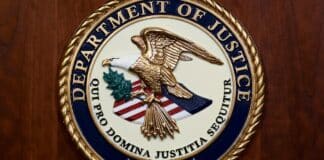A federal judge in California rejected Bay Area Rapid Transit’s (BART) effort to overturn a verdict awarding six former employees $7.8 million after they were fired for refusing to take the COVID-19 vaccine for religious reasons.
Judge William A. Alsup of the U.S. District Court for the Northern District of California denied BART’s argument that accommodating the religious exemption would have been a burden.
“Since BART was the only side to present experts (on this topic), BART’s Rule 50 motionpresupposes that the jury was obligated to accept their opinions. That is incorrect. That is not how jury trials work,” Alsup wrote. “In light of the large sums paid to the experts by BART, our jury was entitled to find that they were ‘bought and paid for,’ were merely parroting the ‘company line,’ and were not credible in light of their bias, common sense, and other evidence. An expert witness is like any other witness, and it is up to the jury to decide how much weight their testimony deserves.”
Alsup noted that BART also provided inconsistent evidence.
“Curiously, BART presented zero evidence of the information actually relied upon by the BART board in adopting its mandatory vaccine requirement,” he wrote. “We saw no decision memorandum presented to the board. We saw no resolution adopted by the board reciting any evidence. We heard no testimony from anyone who presented scientific evidence to the BART board or who made the decision.”
“Simply put, on the instructions given and evidence received, a reasonable jury could have found that BART had not carried its burden of proving its affirmative defense,” the judge added. “For the above reasons, BART’s motion for judgment as a matter of law under Rule 50 is DENIED.”
BART argued in the initial lawsuit that the employees’ requests for accommodations were more secular than religious, although the jury disagreed.
“Of the 179 religious objector employees, not one received an accommodation,” the lawsuit read. “Exclusion of religious people from the enjoyment of a right stands in violation of the First Amendment’s religion clauses and federal and state anti-discrimination in employment laws.”






